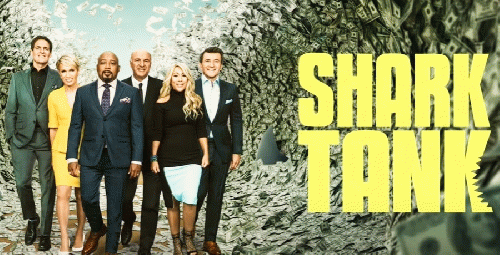On Shark Tank, the reality show produced by ABC TV, new entrepreneurs pitch their nascent businesses to hugely successful entrepreneur investors hoping to acquire financing and strategic partners. The brilliant show has created scores of new millionaires whose enterprises have contributed to the U.S. economy and have provided thousands of jobs. It has also inspired a new generation of entrepreneurs, some as young as ages 13, 11, and 6. Perhaps most importantly, the show has confirmed that the American Dream is alive and well.
Shark Tank also exposes what's wrong with our polarized society and political arena. In competing for deals the sharks will often fight fiercely sometimes criticizing, even insulting each other. But that doesn't stop them from working together to invest jointly in promising businesses.
Presenting climate projects to the Sharks would be as demanding as it is for current hopefuls on the show. The sharks are no easy money fools. Nor are they deceived by flashy ideas that are not backed by sound business plans and scalability to reach projected goals. Often Shark Mr. Wonderful (Kevin O'Leary) will protest "I'll be old before I get my money back from your deal."
Shark Lori Greiner is fond of asking: "You say Walmart and Target have expressed interest in your invention at trade shows. Do you have purchase orders?" If there are no purchase orders (commitments to buy) the interest in the product is a maybe at best. And maybes are red flags for sharks. Success for the proposed business then depends on "if."-- IF big retailers come through with purchase orders. However, just interest in a product is often a polite way of saying no.
Shark Tank's emphasis on sound disciplined investing got me wondering how the sharks would respond to many of the projects designed to stop the devastating effects of climate change. Are these projects sufficient or scalable fast enough to halt anticipated disasters?
I can imagine the challenging voice of Shark Mark Cuban querying CEOs and Government officials: You set goals for reducing emissions years ago that haven't been met. Why should we believe that more of the same programs will work now? How will more money make a difference? What do you think would actually make a difference?
Unlike Shark Tank-backed businesses, the outcomes of climate projects over the last two decades have been dismal. Despite billions invested in countless projects globally, the world is in worse shape than when these projects were initiated. CO2 in the atmosphere is at its highest level ever. At 420 ppm (parts per million), as recently reported by the National Oceanic and Atmospheric Administration (NOAA), it crosses a bar scientists have said we must not cross. And unprecedented three-digit extreme temperatures in parts of the world are threatening health, lives, and economies.
Surprisingly, many see their projects and proposals scaling decades in the future--like the recent pledges of many countries to achieve net zero emissions by 2050. This defies scientists who are warning that we have as few as ten years to achieve that goal before we experience the worst consequences of climate change. According to UN Secretary-General Antonio Guterres, the world is on a "highway to climate hell with our foot still on the accelerator."
Tragically, the barrage of reports and dire warnings about current and impending climate change calamities seem to have desensitized the public. The words "crisis" and "catastrophe" have become normalized. Thus, we continue on the same paths with programs that have failed in the past and are not likely to succeed in the future in time to achieve net zero emissions.
We repeatedly hear that there is still time to defeat climate change IF." However, the climate change ifs have been compromised over and over as reflected in the increasing climate change-initiated disasters.
A Shark Tank special on climate change could provide a great service to the world. Let's hear the sharks' reactions and counsel to staged proposals modeled after current climate projects or actual ones in development. That might expose likely failures, as well as potential successes. Ultimately, it might inspire the best, most feasible programs to assure the viability of life on this planet.






